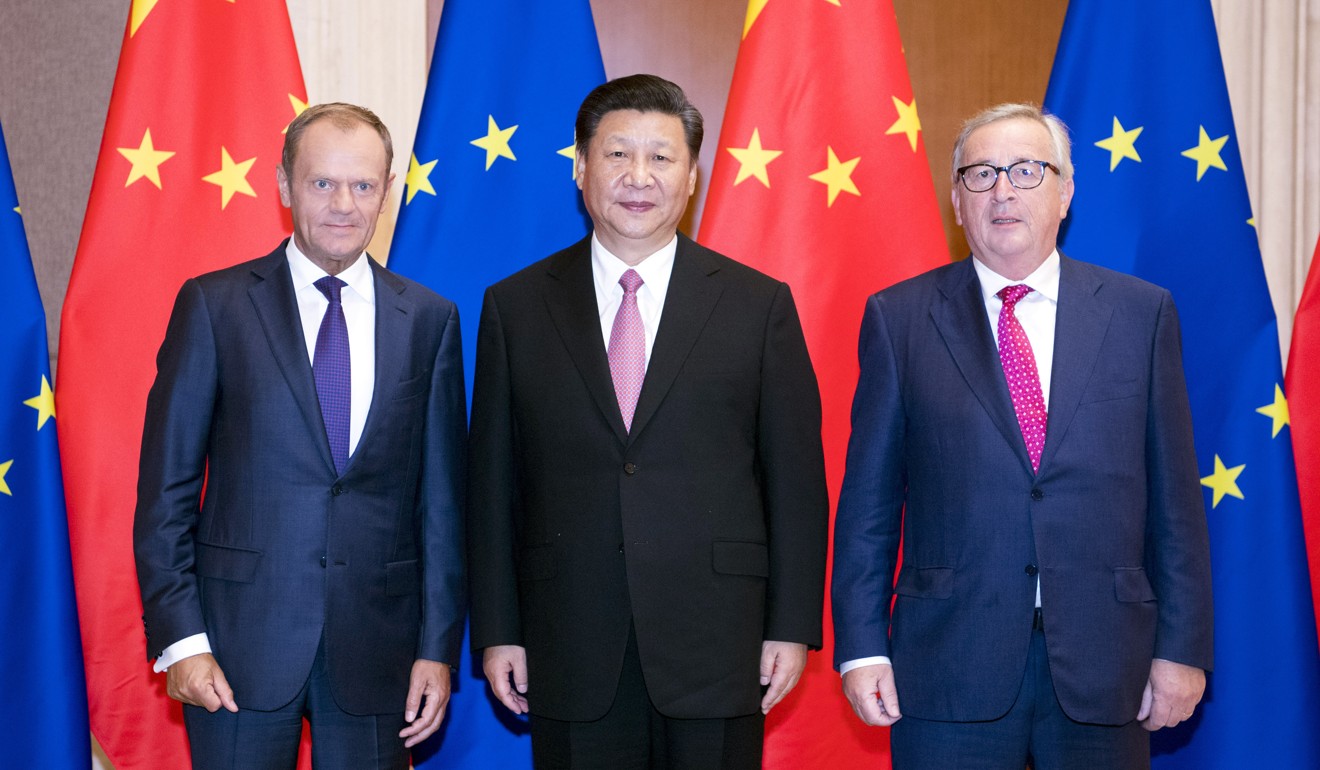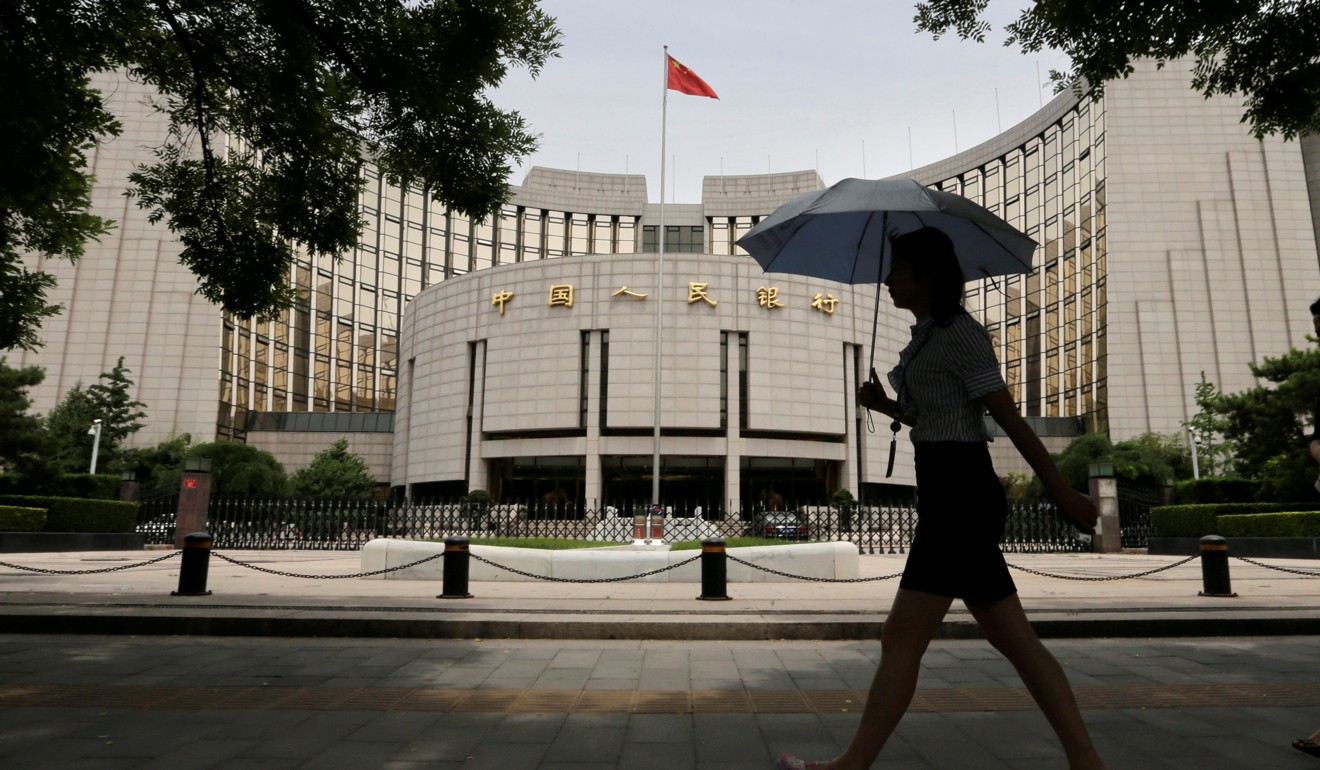China can end the trade war by conceding defeat to Trump
Some serious discussions are going on in China as the country faces an escalating trade war with the United States, slowing domestic growth and increasing investment restrictions in the US and Europe. There seems to be recognition that the previous playbook drafted by hardliners has not worked and Beijing needs to change its strategy.
Beijing’s strategy of a tit-for-tat retaliation over tariffs has clearly failed. In fact, this strategy escalated the conflict. The direct retaliation after the US announced the first batch of 25 per cent tariffs on US$50 billion in Chinese goods (with the increase from US$34 billion just finalised and coming into effect on August 23) brought few benefits for China. If anything, it gave the US an excuse to plan for a new batch of tariffs covering US$200 billion in Chinese goods. To be fair, it is possible that the US would have escalated the conflict even if China had not retaliated, but whatever the case may be, China’s strategy did not work.
On the evening of August 3, Beijing decided to implement differentiated tariffs over US$60 billion in US exports and on August 8 released a list of an additional US$16 billion worth of American goods to hit with tariffs. Beijing is nearing its tariff retaliation limit.
It was rumoured that Beijing had been trying to line up with the Europeans, as well as other nations, to fend off the tariff threat from the US, but it seems this strategy is not working either.
What Europe needs from Beijing to be a better friend to China
On July 26, following European Commission president Jean-Claude Juncker’s visit to Washington, the EU and the US reached an agreement on trade. It is true that the joint statement itself is vague and does not mean the trade troubles between the EU and the US are wholly resolved, but in the eyes of Chinese observers this significantly reduced the chance that the Europeans would join forces with China. In fact, European Council president Donald Tusk tweeted that “America and the EU are best friends”. He was echoed by the vice-president of the European Commission, Frans Timmermans, who tweeted “Europeans and Americans are bound by history and their shared values”.
The development is alarming for Chinese observers as they fear that China is being left behind and is under siege. Trade progress or deals have also been made elsewhere. On July 16, Japan and the EU signed the largest free-trade agreement ever; trade officials from the US and Japan are also meeting this week to discuss trade. It is also reported that Mexican officials expressed optimism about a Nafta deal soon. US President Donald Trump has even talked about the possibility of meeting with Iranian leaders on a “no precondition” basis. It seems that China is the only major country that is not making any progress.
China’s risky game plan on trade war
Although there is still a chance that the Trump administration will start hitting other counties with tariffs again, once more giving China hope of allying with these other countries, it is clear that they are unlikely to stand with China on other fronts. For example, it is reported that from Berlin to London, the Europeans are tightening their scrutiny over Chinese investments in the name of national security, a move following US footsteps.

This setback has caused heated discussions domestically. People in academia, think tanks and the finance industry are concerned about China’s policy directions, not only in its recent dealings with the US about trade but also the overall trend over the past few years. There are increasing voices that China’s gain from the reform and opening-up policies of the past 40 years were because China has become integrated into a global economic system run by the US and its allies.
It is inappropriate, or at least premature, to send signals, intentionally or not, that China is about to build a new system to replace the existing one. China is still far from prepared for an economic confrontation with the US, because China is much more dependent on US demand than the other way round, and it would only hurt itself if it were to take a hardline stance. Instead, China should be more focused on its own development and reforming the domestic economy.
Why China’s central bank is caught between a rock and a hard place
It is possible that there were miscalculations several months ago when Beijing came up with the strategy of tit-for-tat retaliation, either because it underestimated Trump’s determination on trade policies, or because they underestimated the Washington establishment’s rising anti-China sentiments. By now, everybody in Beijing should have figured out how tough the situation is. Thus, Beijing has started to change its strategy.
Devising a whole new playbook will be tough. Over the past month, Beijing has been busy coming up with policies to insulate the domestic economy from external uncertainties. Monetary policy was the first to adjust, and since late June all the policies are quickly moving towards easing. The so-called “policy dispute” between the People’s Bank of China and the Ministry of Finance lasted for no more than two weeks, as the top leaders urged fiscal policy to be more proactive and requested “stability” on all fronts in the communiqué following the Politburo meeting on July 31.
Eventually, Beijing still has to convince the Americans to come back to the negotiation table, just as Europe, Japan and Mexico are doing. However, at this point it is unclear how or when this would happen.
Last week, some reports said that private talks were still going on between Chinese Vice-Premier Liu He and US Treasury Secretary Steven Mnuchin, to find ways to restart the dialogue. But soon after, it was reported that the US had proposed raising its tariffs on the US$200 billion in Chinese goods from 10 per cent to 25 per cent.
false
Can Trump’s ‘bully diplomacy’ resolve problems with Chinese trade?
This development reveals the problems Beijing struggles with when thinking about the new playbook. First, even if Beijing is willing to talk and make concessions, it is uncertain whether the US will accept and stick to them. If the US is more aggressive, even if Beijing does nothing, how can the Chinese be sure the US will not bully them further if they throw in the towel first?
Second, Beijing probably realises discussions with cabinet members such as Mnuchin are not effective because the conversations do not yield any meaningful outcome. It is much more effective to talk to Trump, and others (such as the EU) have shown by reaching deals directly with Trump.
To get out of this predicament, Beijing probably needs to deal with Trump directly, figure out what he needs to declare a win and create conditions for that. Of course, allowing Trump to declare victory might be tough and even embarrassing for Beijing, but sometimes it is the best choice to stop losses in one trade and hope to profit at another time.
Xu Yimiao is an independent China-based researcher
